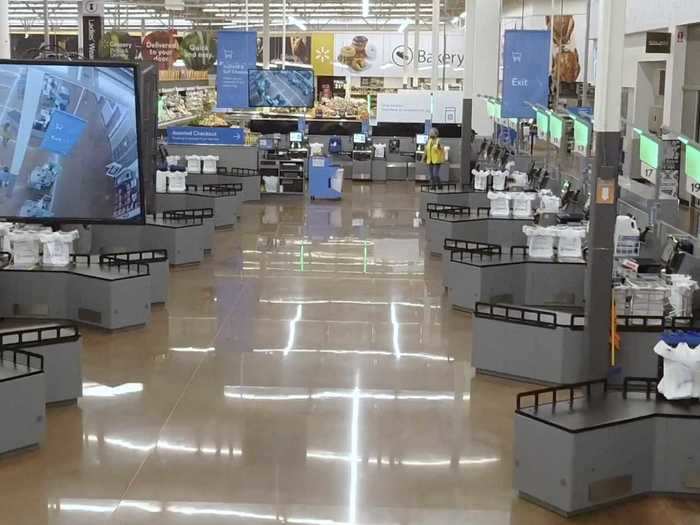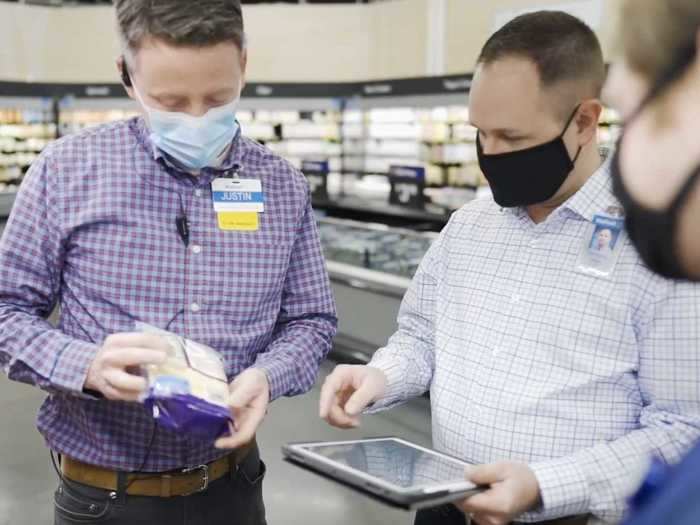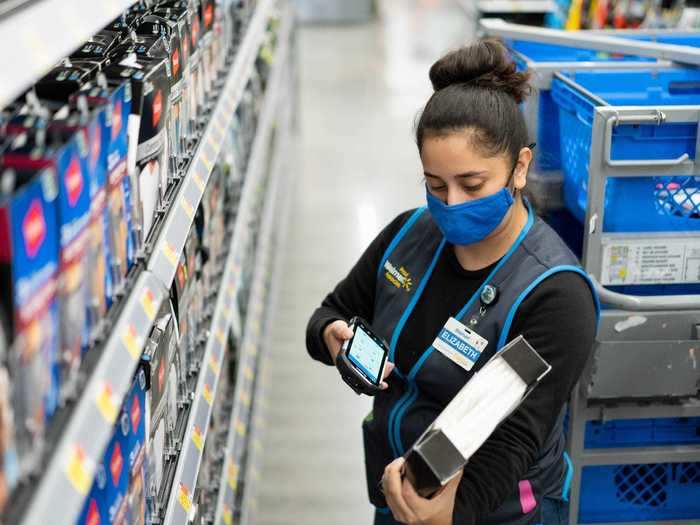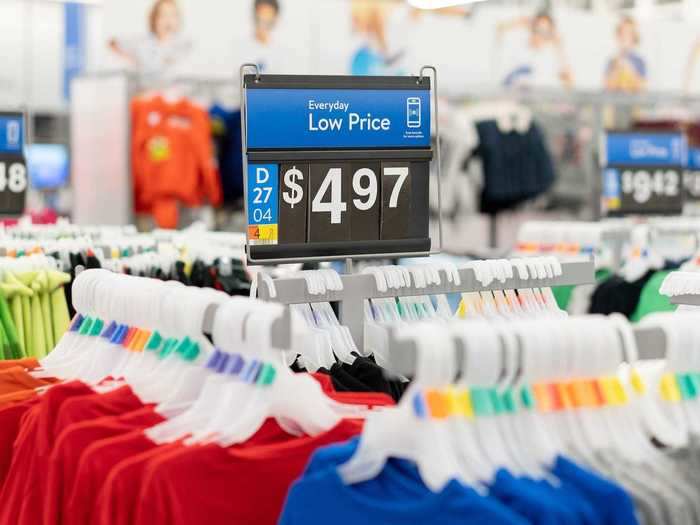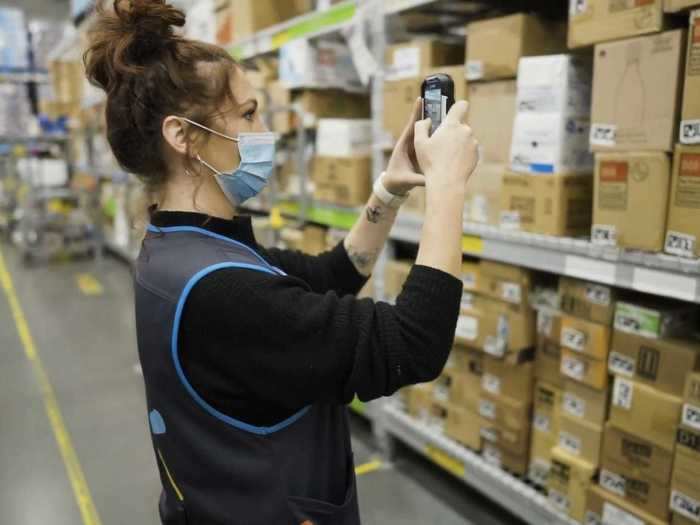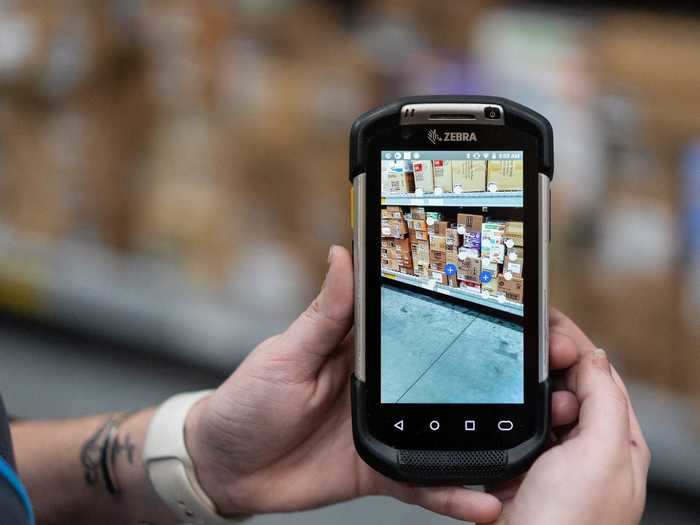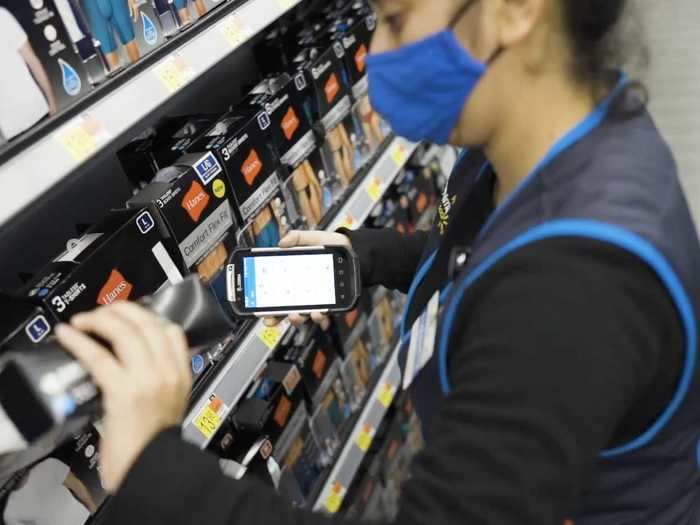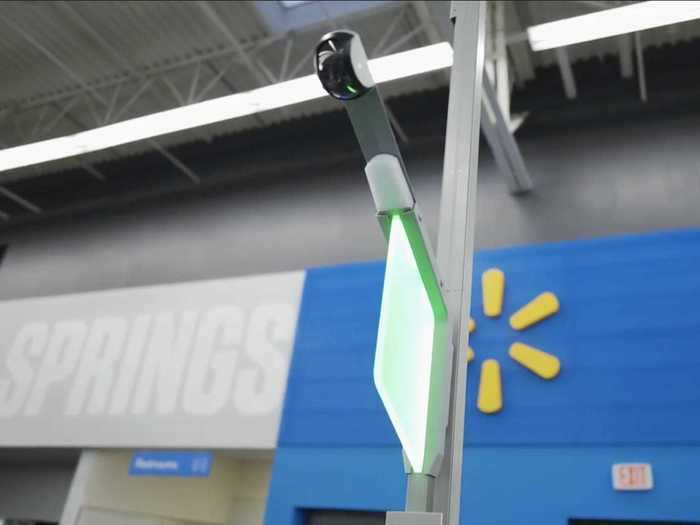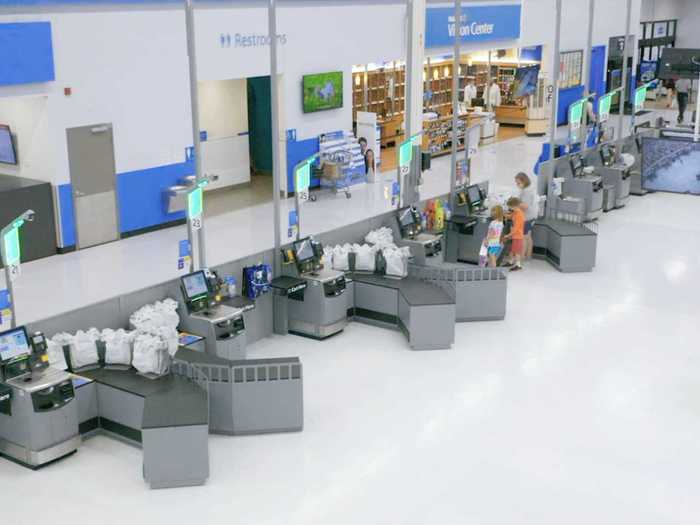A Walmart personal shopper using the handheld device.Walmart - Walmart will be testing the integration of online order fulfillment centers into in-person shopping stores as the company's ecommerce sales continue to boom during the coronavirus pandemic.
- The four stores will also test new technologies and enhancements meant to streamline the stores' operations.
- Last month, the retail giant announced that it would be hiring 20,000 seasonal ecommerce warehouse workers.
Walmart will be testing the integration of ecommerce hubs into four of its in-person shopping locations as the chain's online sales continue to skyrocket amid the coronavirus pandemic.
The locations will serve as both a typical brick and mortar shop and an online orders fulfillment center with new technologies and programs that will streamline the store's operations. According to Walmart, this strategy will be the first of its kind in the industry.
Read more: Meet the 11 execs who are leading Walmart's advertising push as it tries to take on Amazon
This decision to test more fulfillment centers should come as no surprise. Like many retail giants with an online presence, Walmart's ecommerce sales skyrocketed during the coronavirus pandemic. And last month, the company announced its plans to hire 20,000 seasonal ecommerce warehouse workers to accommodate this continuing boom.
Keep scrolling to see how these tests may boost ecommerce fulfillment efficiency:
The four stores — two of which have already been established — will test new technologies and programs.
The checkout area at Walmart's new test stores.
Walmart
According to the retail giant, the upgraded stores will also be using "products and technology" teams to test these new systems.
The teams will then either remove the add-ons that aren't productive, or increase the use of strategies that work well, therefore generating what the company calls a "true rapid prototype environment."
A Walmart personal shopper using the handheld device.
Walmart
These upgrades include an "omni-assortment" program that will shift items — such as most of its in-store clothing options — onto Walmart's website for increased in-store and online availability and access.
The apparel signs at Walmart.
Walmart
Walmart will also be testing its in-house app designed to speed up the process of moving items from the backroom to the sales area.
Walmart's augmented reality app.
Walmart
The app will be on a device that uses augmented reality to flag products that are ready to be moved to the sales floor, eliminating the need to scan each box separately.
Walmart's augmented reality app.
Walmart
The stores will also be using new signs and handheld devices to help direct workers to products needed for an online order fulfillment.
A Walmart personal shopper using the handheld device.
Walmart
According to Walmart, this "first-time pick rate" program has already shown promising signs: successful first attempts at locating items has increased by 20% in difficult "categories."
The checkout area at Walmart's new test stores.
Walmart
The four stores will also continue testing Walmart's lane-free checkout area — which includes contactless options — that was initially revealed several months ago.
The checkout area at Walmart's new test stores.
Walmart

